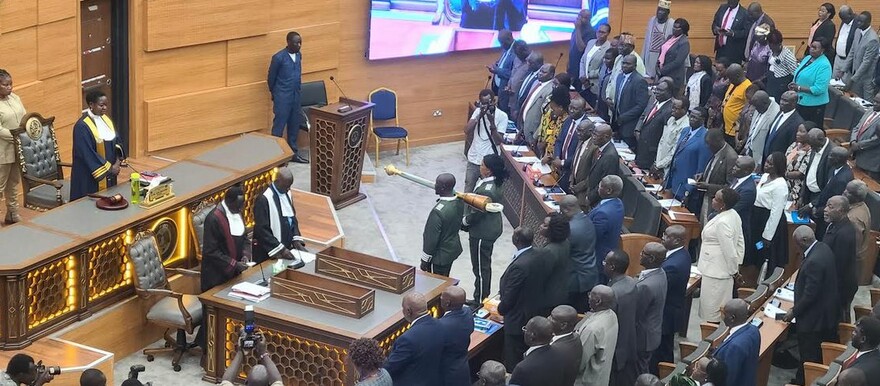Members of the Transitional National Legislative Assembly (TNLA) on Monday expressed grave distress over the skyrocketing prices of necessities including water, fuel, flour, and other essential items in South Sudan’s capital Juba.
Natalina Juma Malek, the deputy chairperson of the House’s Specialized Committee for Information and a South Sudan Opposition Alliance (SSOA) member, attributed rising prices to the depreciation of the South Sudanese Pound.
She alleged that prices in the market are controlled by individuals, work she said is supposed to be the preserve of the government.
“Honorable Speaker, my point of information is that the rate of dollar (USD 100) is going to SSP 190,000 and what I have seen is that transactions are conducted by individual business people. If transactions are done by businessmen, it means the system is not in place,” she hypothesized. “Transactions are supposed to be done by the government so the benefit goes to the government. If it is done by the government we have something to benefit as South Sudan.”
According to Juma, a 50kg bag of maize flour has now risen to SSP 90,000 from 50,000, a liter of fuel from 1,000 to 3,500, and a barrel of water is now SSP 2,500 from 1,000.
She called on the House to urgently address the issue of rising market prices in Juba and other parts of the country.
Addressing journalists after the Monday session, Oliver Mori, the chairperson of the Information Committee and parliamentary spokesperson, said that legislators were indeed concerned about the soaring commodity prices.
“The members of parliament noted that the exchange for the dollar now has risen and expressed concern over this rise which has led to the increase in the prices of fuel, water, and everything making life very difficult for the citizens,” he said. “As such, parliament resolved that the Honorable Natalina Juma who raised this issue put it in writing and bring it as a motion so that the ministers concerned are summoned to the parliament to address this issue of skyrocketing prices and the rise of the uncontrolled dollar in the market to ease the livelihood of the people.”



